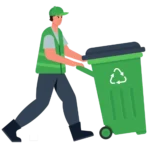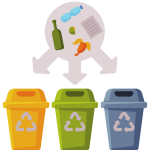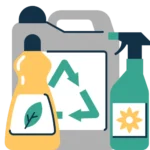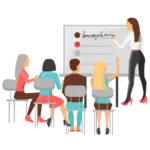Commercial carton recycling
Get the best waste collection quotes for your business today
Just enter your business postcode…
Get the best waste collection quotes for your business today
Just enter your business postcode…
Start saving now
At Commercial Wate Quotes, we compare services from trusted providers to connect businesses with the best carton recycling solutions.
Explore our detailed sections below to learn more about our services and the benefits of recycling cartons:

Discover how cartons are collected, sorted, and recycled into new products, ensuring minimal waste and maximum resource recovery.

Understand the numerous environmental, economic, and regulatory advantages of recycling cartons and how your business can contribute to a more sustainable future.

Learn about the different types of cartons that can be recycled, from beverage containers to food packaging, and how to prepare them for recycling.
Understanding the carton recycling process can help you appreciate the impact of your efforts and inspire more sustainable practices.
Here’s an overview of the recycling process:

The first step in carton recycling involves collecting used cartons from businesses. These cartons are typically made from paperboard, plastic, and sometimes aluminium and are commonly used for packaging liquids like milk, juice, and soups.

Once collected, the cartons are transported to a recycling facility and sorted. This step ensures that only recyclable materials proceed to the next stage, improving the efficiency and effectiveness of the recycling process.

The sorted cartons are then fed into a machine that shreds them into smaller pieces, making it easier to separate the different materials that make up the cartons.

The shredded cartons are mixed with water and agitated in a large tank known as a pulper. This process separates the paper fibres from the plastic and aluminium layers. The paper fibres are recycled, while the plastic and aluminium can be used in various applications or energy recovery processes.

The recovered paper fibres are then cleaned and refined to remove contaminants. These fibres produce new paper products such as paper towels, tissue paper, and even new packaging materials.

The plastic and aluminium layers separated during the pulping process can be recycled into new products. Plastic can be used to create new products or as an energy source, while aluminium can be melted down and reused in various industries.

Finally, recycled materials are used to manufacture new products, such as tissue paper, packing materials, and foil, to complete the recycling loop. This not only conserves natural resources but also reduces the amount of waste sent to landfills.
Recycling cartons offers numerous advantages for both businesses and the environment. Here are some key benefits:

Recycling cartons reduces the need for virgin materials, conserving natural resources such as trees, water, and minerals. This helps preserve ecosystems and biodiversity.

By recycling cartons, businesses can significantly reduce the volume of waste sent to landfills. This extends the lifespan of landfill sites and decreases the methane emissions produced by decomposing waste.

Recycling cartons can lead to cost savings for businesses, reducing waste disposal costs and potentially earning revenue from recyclable materials.

Many regions have strict waste management regulations. Recycling cartons helps businesses comply with these regulations, avoid potential fines, and demonstrate environmental responsibility.
Understanding the types of cartons that can be recycled is crucial for efficient and effective recycling. Here are the main categories of recyclable cartons:
These are the most common types of cartons found in households and businesses. They include:
Cartons used for packaging a variety of liquid and semi-liquid food products, such as:
These cartons do not require refrigeration until opened, including:
Tetra Pak is a specific carton packaging brand widely used for various liquid food products. These include:
Recycling cartons is an integral part of sustainable waste management, but it comes with challenges.
Here are some common issues businesses may face when recycling cartons and how to address them:

Problem: Cartons are often contaminated with food or liquid residues, hindering recycling.
Solution: Ensure that all cartons are thoroughly rinsed and emptied before recycling. Providing clear guidelines and education to staff can help reduce contamination.

Problem: Cartons are typically composed of multiple materials, including paper, plastic, and aluminium, making them difficult to recycle.
Solution: Utilise recycling facilities equipped with the technology to separate these materials efficiently. Partnering with a recycling provider experienced in handling composite materials like Tetra Pak can improve recycling rates.

Problem: Many people need to be aware of which types of cartons can be recycled or how to prepare them for recycling properly.
Solution: Increase awareness through educational programs and clear signage. Providing training and resources can help employees and customers understand the importance and process of carton recycling.
The UK has been making strides in carton recycling technology, addressing the challenges posed by composite materials like beverage cartons.
These cartons, typically composed of paperboard, plastic, and aluminium, require advanced recycling processes. Here’s a breakdown of the carton recycling technology:
Process: The primary technology used in carton recycling is hydra pulping. This process involves mixing the cartons with water to separate the paper fibres from the plastic and aluminium layers.
Fibre Recovery: The paper fibres are recovered and can be used to produce new products like tissues, towels, and office paper.
Residue Management: The plastic and aluminium residue, often called PolyAl, is further processed to recover materials.
Extrusion: The plastic and aluminium mix is subjected to extrusion, melting and forming into pellets. These pellets can manufacture products like construction boards, crates, and pallets.
Innovative Uses: Some facilities have developed methods to separate aluminium from plastic, enabling the recycling of aluminium into new metal products and plastic into new plastic products.
Infrared Sorting: Some advanced MRFs, operated by Veolia and SUEZ, use near-infrared (NIR) technology to identify and sort cartons more efficiently from other waste streams.
Automated Systems: Robotic sorting systems equipped with AI, can recognise and separate cartons at high speed, improving the efficiency of recycling operations.
Our experts answer your frequently asked questions about carton recycling below.
There are many environmental benefits to recycling cartons, including:
Reduces Waste in Landfills:
Recycling cartons helps reduce the amount of waste sent to landfills. This, in turn, decreases the need for new landfills and mitigates the environmental impact associated with landfill sites, such as soil and water contamination.
Conserves Natural Resources:
Recycling cartons means that fewer raw materials are needed to produce new products. This conserves natural resources like trees (for paper) and petroleum (for plastic components), helping to preserve forests and reduce the extraction of fossil fuels.
Saves Energy:
The process of recycling materials typically requires less energy than producing new products from raw materials. For instance, recycling paper cartons can save a substantial amount of energy compared to producing new paper from virgin wood pulp.
Promotes Circular Economy:
Recycling cartons supports the circular economy model, where products and materials are reused and recycled, creating a closed-loop system. This reduces the need for continuous production of new materials and promotes a more sustainable use of resources.